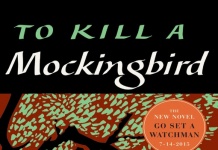
Change.org has an article quoting best-selling authors Marilyn Johnson, Neil Gaiman, Cory Doctorow, Judith McQuown, Orel Protopopescu, Christopher Norris, Kate Douglas, Marie Brennan and Ryk E. Spoor about their distaste for HarperCollins new ebook library policy. Most of the authors quoted have actually been published by HarperCollins. Here’s the full article by Carol Scott (Creative Commons Licensed):
Asked in February what he thought of HarperCollins’ decision to cash in on libraries by selling them “self-destructing” e-books, literary superstar Neil Gaiman tweeted back in just five words: “I think it’s incredibly disappointing.”
HarperCollins author Gaiman – best known for novels Coraline and Stardust, as well as the comic book series The Sandman – isn’t the only author who’s spoken out against the publishing giant’s new policy. The Rupert Murdoch-owned NewsCorp announced recently it will sell e-books to libraries that will last only 26 reads, forcing cash-strapped libraries to purchase popular titles again and again. (Librarian Andy Woodworth’s campaign against the Rupert Murdoch-owned publishing house has more than 65,000 signatures on Change.org, making it one of the most popular campaigns on the site to date.)
From an award-winning children’s author to a British academic, here are eight more authors critical of the HarperCollins e-book policy:
Best-selling HarperCollins author Marilyn Johnson, whose new book on libraries titled This Book Is Overdue! got rave reviews in The New York Times Book Review, The Wall Street Journal andPublishers Weekly, strongly criticized the e-book policy on her blog: “This isn’t what I want, e-books with evaporating powers! Are you kidding? No author wants to write a book with the power to disappear. We want the opposite: We want to write books that will last.”
Blogger, journalist and science-fiction author Cory Doctorow signed – and tweeted – the Change.org petition, urging librarians on his blog, “Stop buying from publishers who stick time-bombs in their e-books.” (Doctorow is published by HarperCollins in some countries, he added.)
Judith McQuown, best-known for Inc. Yourself: How To Profit by Setting up Your Own Corporation – which sold half a million copies and is in its 10th edition – signed Woodworth’s Change.org petition and commented, “As a former HarperCollins author, I am disgusted, but not suprised. NewsCorp is interested in money, NOT the joy and pleasure of reading.”
Award-winning children’s author Orel Protopopescu, whose new book Thelonious Mouse comes out June 7 from Farrar, Straus and Giroux, signed the petition to HarperCollins last week. “Libraries are one of the last bastions of egalitarianism we have left in the USA,” she told Change.org. “Today, the gap between our wealthiest citizens and the vast bulk of the US population is more than double that of any other industrialized nation. If libraries can’t preserve equal opportunity to enlightenment, the intellectual impoverishment of our citizens will continue to accelerate.”
“As a HarperCollins author I deplore this mean-minded, short-sighted and exploitative policy,” wrote Christopher Norris, a professor at Cardiff University in Wales, as he signed the petition. Norris, who has written around 30 titles in philosophy, literary theory and music, published a Modern Mastersvolume on Jacques Derrida with an imprint owned by HarperCollins.
Kate Douglas, best-selling author of the Wolf Tales romance series and the newly released Starfire, signed the petition at Change.org and added, “Many of my really loyal readers first discovered my books in their local libraries, and have gone on to buy my stories for themselves, so libraries are, in effect, a great sales tool. I’d rather see publishers dealing with the huge issue of ebook piracy and leave libraries alone.”
Fantasy author Marie Brennan, best known for 2008’s Warrior, signed the petition and defended the role of libraries: “I’ve lost count of the number of authors whose books I first picked up in the library, before making the jump to purchasing. Libraries allow me to read much more broadly, which in turn means I spend money more confidently, knowing I’m not risking my cash blindly on a new author. If U.S. public libraries were flush with funds, maybe they could survive having e-books expire on them, but as it stands they’re barely keeping afloat. Given the service they do for the reading public, I think everybody benefits from not screwing them over.”
Science fiction author Ryk E. Spoor, who signed the petition, said that his e-books offered free through the Baen Publishing House Free Library have gone on to sell many more copies – in print and online. “Much of my published work is available online for free from my publisher,” he told Change.org. “Despite this, these books keep on selling.”
Spoor continued, “Libraries — both school libraries and public libraries — are the foundation of true learning, literacy, and love of books. You can’t FORCE someone to love to read… but if you give them the opportunity, let them wander through the stacks (virtual or real) themselves, and choose their own path, they’ll teach that lesson to themselves.”
He continued:
“But they cannot do this without a library to wander through, and a library MUST be able to update its collection, expand its offerings to include the new with the old. I have personally gone round to many of the libraries in my region and GIVEN them copies of my books — free. I am reasonably confident I’ve made money off the deal, or will in the long run, because kids who read those books (for I deliberately targeted school libraries as well as public ones) will remember if this “Ryk E. Spoor” gave them that sense of wonder, and they’ll look for that name when they’re thinking about getting new books.
“A publisher who alienates or cripples a library is shooting itself in the foot with a machine gun.”
Photo credit: popculturegeek.com via Flickr
 Carol Scott is the Education Editor for Change.org.
Carol Scott is the Education Editor for Change.org.


































I’m glad authors are speaking out about this, Harper Collins is short-sighted, as usual.
It is disappointing however, to see an author fall for the piracy myth:
“I’d rather see publishers dealing with the huge issue of ebook piracy and leave libraries alone.”
As many previous articles state, piracy is not as big an issue as the publishers make it out to be and most people who pirate would have never purchased the books anyway. The best defense is to make ebooks widely available with the fewest barriers to purchase. Get rid of the geographic rights and DRM and you’ll win the battle.
Being one who regularly has less than polite things to say about old style and A6 publishers I am quite sympathetic to their situation on this one issue.
Publishing is a business. And ‘business’ is not a dirty word. While I feel HC was a bit premature in taking such direct action, I think that the place of libraries in our culture is about to enter a critical transition period and right now eBooks are not a critical part of their services anyway.
I cannot see the current library model surviving in 10 years time and from a business point of view selling an eBook to a library and having it ‘borrowed’ 500 times free of charge is a bizarre thing to expect of a business.
The comments of some of the above authors are priceless:
Marilyn Johnson: “No author wants to write a book with the power to disappear” and Corey Doctorow: “Stop buying from publishers who stick time-bombs in their e-books.”
Both authors might like to tell that to the purchasers of eBooks from iFlow who just announced that eBooks bought from them may not last beyond 31st May 2011 because of their DRM.
Judith McQuown: “NewsCorp is interested in money, NOT the joy and pleasure of reading.”
Is Ms McQuown donating her royalty to charity ? Did she turn down Harpers royalty offer and say ‘nah … I’m here to give people pleasure, not make money’ ?
If a book is borrowed for 2 weeks on average it’s not likely that a single copy is going to be borrowed 500 times. The video of the library books that had been loaned over 100 times (and were still in good condition) were books that had been published years ago. This isn’t as big of a deal as the publishers are making it out to be.
Business isn’t a dirty word but that doesn’t mean that business interests have to take priority. I believe that a condition of copyright protection should be that the books are made available in libraries. I would argue that libraries are in the long term interest of the industry and what the HarperCollins is doing is short sighted.
Having said that I wouldn’t have an issue with alternate models such as paying 1/75th of the current purchase price every time an ebook is borrowed. I’m sure there are lots of books that are borrowed less then 75 times so it would balance out. Whatever a fair number is I know it’s not 26.
Libraries still exist? Why? Are my taxes going to support them? Who do I vote against to get them shut down?
This is a tempest in a teapot. Who cares? Regular e-book versions will still exist. They just won’t be sold to libraries. If your precious novel has disappeared 100 years from now, it will be because of problems other than library lending limits, such as changing data formats. And in 10 years the whole “e-books from libraries” silliness won’t exist anymore, because libraries will be gone, except maybe for children’s books.
If it’s a money thing, then let’s pass laws to give “book stamps” to the poor, so they can use them on the Kindle store. That way all the money will go to the publishers and writers, not to deadbeat librarians and buildings.